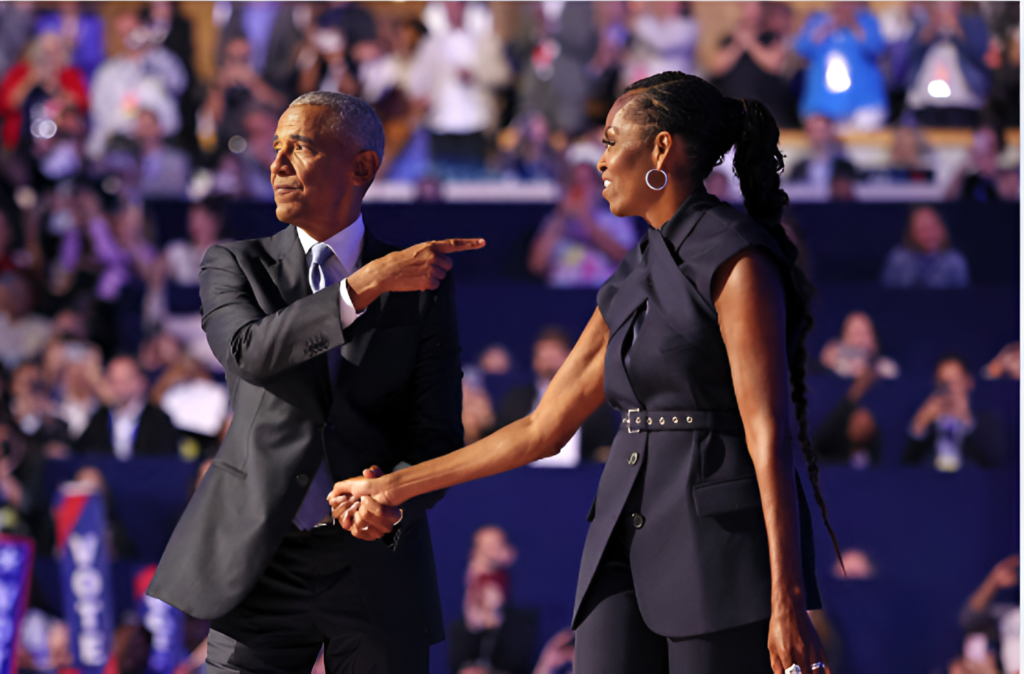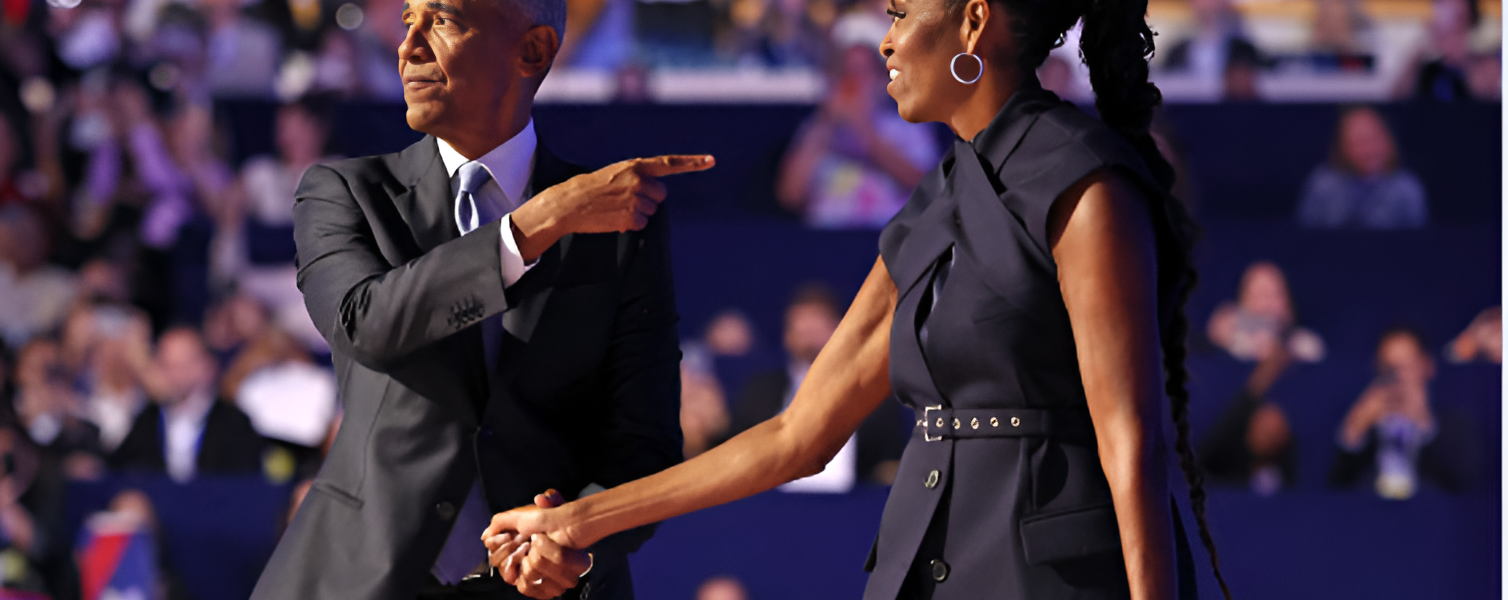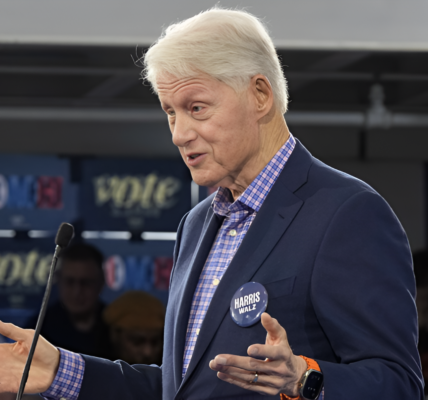
Over the past decade, Donald Trump has firmly established himself not just as a former president, but as the head of a political movement that draws fierce devotion from his base. Democrats have consistently railed against him, painting him as a dire and historically significant figure. These denunciations, though genuine, played into Trump’s hands, providing him with the validation he craved—casting him as a larger-than-life force, even as they sought to tear him down.
But at this year’s Democratic National Convention, the Obamas offered a fresh perspective, one designed to deflate Trump’s inflated image. In two remarkable speeches, former President Barack Obama and former First Lady Michelle Obama sought not to elevate Trump as a singular threat but to make him appear small—just another loud, grievance-obsessed figure in the long tradition of American demagogues.
As Barack Obama put it, Trump is less a diabolical genius and more like “the neighbor who keeps running his leaf blower outside your window every minute of every day.” For the Obamas, Trump isn’t a towering historical figure, but a wearily familiar character whose tactics of fear-mongering and division have become a tired routine.
While both speeches struck a tone of lighthearted derision, the underlying strategy was clear: make Trump appear less like a formidable opponent and more like an irrelevant nuisance. They aimed to reduce his stature, shifting the focus away from his extreme rhetoric and undermining his influence over the political discourse.
This approach starkly contrasts with that of President Joe Biden, who often speaks of Trump in grave terms. Biden’s moralizing rhetoric—framing the battle as one for “the very soul of America”—has its place, but it also risks reinforcing Trump’s polarizing effect. Trump’s supporters thrive on the contempt he generates; they view any attack on him as an attack on themselves. The more Trump is vilified, the more it strengthens his base.
Barack Obama, in particular, sought to break this cycle of escalating contempt. He acknowledged the divisions in American society but emphasized that real progress would come from listening to those who might not yet support the Democratic candidate. In a key moment, he urged the audience not to dismiss those with differing views but to find common ground and help them evolve, just as we would with a family member whose outdated views we might challenge with patience and understanding.
Michelle Obama echoed this sentiment in her speech, reminding Democrats that, though the choice may seem obvious to them, it doesn’t always look the same to others. In her rallying call to action, she urged her party not to succumb to despair but to remain active and engaged, stressing the importance of perseverance in the face of adversity.
Both speeches, however, weren’t just about confronting Trump—they were also about reclaiming the narrative of American identity. The Obamas made it clear that Trump and his allies, especially the wealthy, were the ones dividing the country. They rejected the notion that Americans are hopelessly split into two warring camps. Instead, they emphasized shared struggles, such as the fight for economic security and against systemic prejudice, framing Trump’s policies as a threat to the middle class, not just democracy.
While the central question of the 2024 election remains the strategy of Kamala Harris and her team, the Obamas have provided a valuable template. Their approach to Trump—making him seem more prosaic and less menacing—could work in tandem with Harris’ focus on economic security and a return to normalcy in civic life.
As Barack Obama concluded, “The vast majority of us don’t want to live in a country that’s bitter and divided. We want something better. We want to be better.” The challenge for Democrats is to present an alternative vision of the country—one that doesn’t center on the chaos and division Trump embodies, but on unity and progress for the working class.
Yet, despite all their efforts, there’s a paradox that remains. Trump has reshaped American political discourse in fundamental ways. The Obamas are well aware of this, acknowledging that, in this new era, even a former president like Barack Obama is forced to speak of his predecessor in personal and scathing terms. The Trump Era, for all its flaws, has changed the game. The Obamas’ strategy to make Trump small is as much about navigating this new landscape as it is about confronting the man himself.





